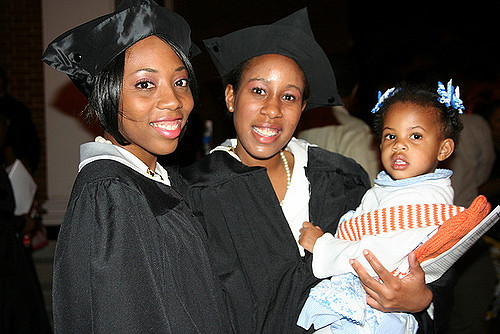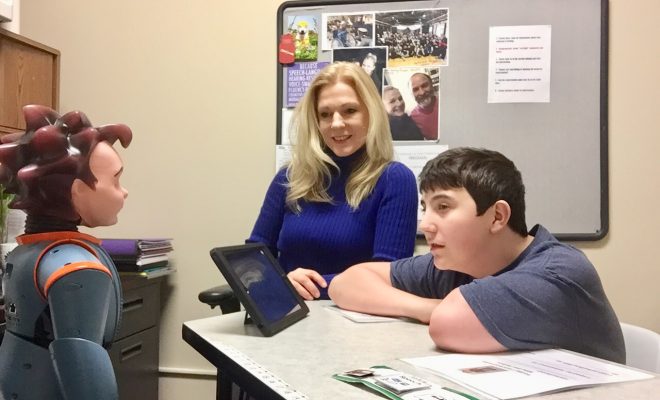The HBCU Advantage, Part II: Or How to Win When the Competition is Tough

HBCUs came into existence in vastly different times, when they were necessary for black students to attend college. Today, they have to be savvy if they want to stick around. Let’s take a look at the shift HBCUs are making to become prominent in today’s integrated culture.
There are many different business models out there, but in general, some serve the mass market and some appeal to niches. When it comes to today’s colleges, it’s easy to see PWIs (or predominantly white institutions) as “mass market” and HBCUs as “niche” schools.
HBCUs have also had long histories, were created to give a healthy university experience to specific populations of students, and are facing closures today as more and more students choose to attend mainstream colleges.
The question stands. How will HBCUs compete against PWIs that now accept and actively recruit minority students and have more resources to serve them? To stick around, HBCUs need to find solutions.
We’re seeing a lot of these solutions in action today. Here is how they are handling situations where the deck is stacked against them.
A solution for when affordability is no longer a good selling point
Presidential hopeful Bernie Sanders wants to help students by giving them a free ride to college. Sanders’ plan calls for making public colleges and universities tuition free. It is, to him at least, a way to make American students the most educated in the world by making the way to college easier.
But some are criticizing Sanders for his plan because it would force states to pick up the extra tab; something that many states are struggling with currently. State legislatures have cut k-12 and higher education for years and don’t seem to be slowing down, even with improvements in the economy.
Another criticism being levied towards Sanders and his plan for college is that it will potentially destroy HBCUs. Representative James Clyburn (D-S.C.), who is supporting former Secretary of State Hillary Clinton for president, has taken issue with Sanders’ free college plan.
Talking to the press earlier this week, Clyburn said that private HBCUs will begin to shut down because states will start to offer free tuition to public colleges. He continued his hits on Senator Sanders by saying that nothing in life is free including college.
For what it’s worth, Clyburn said that he believes in making college more affordable for anyone who wants to attend, just not free.
Clyburn’s assessment of Sanders and his plan for college was devoid of what it will cost as he is attempting to bolster Clinton’s stock with black voters.
To the point of what it may cost to make college free, Sanders has said that he will have to raise taxes to pay for covering college tuition. He wants to place a larger tax on Wall Street speculators which is likely to be a tough sell.
But for what he’s at least attempting to do, it’s not a bad idea. The cost of college has spiraled out of control, and many students have been priced out of even thinking of going to college. But he’ll have to deal with the potential consequences of what this may do to private colleges, including HBCUs.
A solution for when the state isn’t on your side
Issues with Historically Black Colleges and Universities (HBCU) in Maryland continue as the Maryland HBCU faculty caucus put forth a protest at the state’s capitol in March 2016.
The group is demanding equality for HBCUs in the state as they claim that PWIs (Predominately White Institutions) receive better treatment from the state’s lawmakers.
From academic programs to funding, the caucus believes that the state is mistreating its HBCUs and demands better.
The divide runs so deep that a group of former students who attended the state’s four HBCUs filed a lawsuit that claimed that the state gave cover for Maryland PWI’s to commit academic segregation.
In essence, the state allowed for duplicate program offerings at Maryland PWIs when the state’s HBCUs already offered the same coursework.
A judge sided with the former students in their claim that segregation had indeed taken place.
Although the legal wrangling continues as neither side has been able to compromise on a solution that will satisfy either party, the protest leads its way back to the merits of the lawsuit: HBCUs receive improper treatment from the state.
To gain equal footing with Maryland’s PWIs, the caucus wants to eradicate all duplicate programs that are already offered at HBCUs within the state. Secondly, the group wants programs that are in high demand to be offered at Maryland’s HBCUs.
This will partially satisfy its needs, but there is still work to be done.
No resolution has been found, and there is no word on if the group’s suggestions, or demands, will be acted upon.
If anything, this shows just how fragile the relationship may be between state lawmakers and leaders at HBCUs. Some struggle financially, and because of that, those issues may show up in how the schools perform academically.
Hopefully, both sides may soon find a solution to an almost decade-old legal issue.
A solution that may lead to mixed results
In 2015, Historically Black College and University (HBCU) Albany State University (ASU) was forced to merge with Darton State College, a predominately white institution.
The merger was presented as ASU faced mounting financial issues. The school’s enrollment was declining as it dropped nearly 11 percentage points last year, and 15 academic programs were canceled due to money and enrollment issues.
Albany State had problems, and one way to fix them was to merge the HBCU with another school.
That’s where we find Darton State College; a predominately white institution (PWI) of higher education that focuses on two-year degrees.
But no matter, this move was seen as a way to eventually save a struggling ASU from itself. Bleeding money and students, the merger gave some students and leaders hope for the future.
That was until the school’s new mission statement was released. Operating under the banner of Albany State University, students were under the impression that the school would still be considered an HBCU and have that distinction noted in the mission statement.
Darton State’s student body is more diverse as just 45 percent of its student body is black. To accommodate, the state Board of Regents of the University System of Georgia proposed, and approved, a new mission statement that does not include Albany State University as an HBCU.
The old statement notes ASU’s status as an HBCU in the first sentence, while the new one only mentions that the school has historical roots.
Upset over the missing nomenclature, more than 300 ASU students protested the altered mission statement and walked out of the school’s Honor’s Day festivities as ASU President Dr. Art Dunning prepared to speak.
He promised those remaining that while HBCU is missing from the mission statement that ASU will remain an HBCU. Dunning was careful to note that ASU isn’t the only HBCU that doesn’t explicitly note that in its mission statement as seven other HBCUs fail to do so as well.
Dr. Dunning makes good points, but students there are likely feeling that their school is being taken away from them. Many black students choose to attend HBCUs because of the rich history and cultural significance that cannot be found on the campuses of PWIs.
Some probably feel that that experience may be taken away from them if even the smallest things–like a mission statement–is changed.
On the one hand, it’s great that ASU is here to stay. On the other hand, will moves such as the new mission statement dilute the HBCU experience and message? Could this school’s roots and purpose be forgotten in the long run now that its mission statement does not explicitly state that it is an HBCU?
A solution that fills a desperate need
Actor Nate Parker, best known for his work in movies Red Tails, The Great Debaters, and The Birth of a Nation, has started a new film school at Wiley College, a Historically Black College, and University.
The name of the program will be the Nate Parker School of Film and Drama and will open this fall.
Parker launched the school to increase opportunities for persons of color, specifically black people, who are interested in working in film. Parker said that that he wants the new school to cover everything involved in the filmmaking process including sound and lighting.
Familiar with Wiley College, Parker filmed the move The Great Debaters with actors Denzel Washington and Jurnee Smollett-Bell there nearly ten years ago.
In addition to creating the new school, Parker recently sold his newest and latest independent project, The Birth of a Nation, to Fox Searchlight for nearly $18 million.
The movie is based on Nate Turner’s slave rebellion in Southampton County, Virginia in 1831. Parker directs and stars in the film about Turner. Still, in production, The Birth of a Nation has a scheduled release date of October 7th, 2016.
The good news continues for Wiley as the state of Texas honored the school with three historical markers. Professor H.B. Pemberton, Matthew W. Dogan, and the man responsible for coaching the debate team known as the Great Debaters, Professor Melvin B. Tolson.
Between Parker starting a new film school at Wiley, and three figures that were vital to the success of the school, history continues to be made at Wiley College.
With varying news about the health and viability of HBCUs, Wiley College’s ability to remain innovative while attracting new talent is important and worth celebrating. This shows just how much America, and black students, needs HBCUs — for new opportunities like the new one that Nate Parker is creating on the campus of Wiley College.
A solution that promotes an interdisciplinary experience
North Carolina Central University (NCCU) is set to offer a new minor in the fall of 2016. Women and Gender Studies will make its debut at NCCU, and the school will be the first historically black college and university (HBCU) in North Carolina to introduce such a minor.
Dean of the College of Arts and Sciences Carlton Wilson believes that the minor will allow students new chances to research how events– current and in the past — are identified with women and gender.
In essence, this minor may be viewed as a subtopic of intersectionality where as one theory or subject may not be properly studied without the other. While the two words women and gender are certainly separate, it is tough to dismember each because of the power structures that are connected to them.
For example, we cannot gain context of what it is to be a woman without examining how hyper-masculinity, or just masculinity in general, has affected women. The same goes for gender.
The minor will delve deeper than what I just mentioned as African diaspora, women and their global experiences, equality, and more will also be studied by students who choose to select Women and Gender Studies as a minor.
Women and Gender Studies will be available to all students to select, and hopefully many will choose to do so. Courses attached to minors like this will teach students to think critically about issues and areas that impact them or their social structures directly. Race, class, sexism, religion, and so much more will be better understood once students successfully move through the coursework associated with Women and Gender Studies.
It will also give men who take the course a better understanding of just how privilege and masculinity create avenues of opportunities for them that may not be the same for women. I look forward to hearing more about the program once it launches.
A solution where companies are created just to serve HBCUs
Four former Historically Black College and University administrators have partnered with the Thurgood Marshall College Fund to start a new executive search firm.
Titled TM2 Executive Search, the goal of the new company is to pair candidates with administrative jobs at HBCUs.
Former president of Howard University, Sidney Ribeau; Dorothy Yancy, former president of Shaw University; John Garland, former president of Central State University; and Wayne Watson, former president of Chicago State University have all come together to form the aforementioned TM2.
What’s interesting and intuitive about the new venture is that it is the first of its kind for HBCUs. No other company will focus on the needs of HBCUs by searching for prospective employees to fill positions at these schools.
Getting into an arena that will surely help HBCU graduates, and help HBCU schools in the process, is a plus for those who support HBCUs and would like to continue that support post-graduation.
But one reason the effort was started was because many search firms that help colleges find administrators rarely focus on the need of HBCUs. There was an opening in the marketplace to address a specific need, and TM2 did just that.
Because HBCUs are steeped in history and have a deep culture that some may find intimidating or hard to read, the positions may be hard to fill through a traditional head hunting firm.
That may no longer be the case as TM2 gets started.
While the company is certainly focused on servicing HBCUs, one does not have to be a graduate of a Historically Black College and University to be considered for a position found through TM2.
More companies of this nature will hopefully be created in the future as the needs of HBCUs can be vastly different than those of predominately white institutions of higher learning.
A solution where HBCUs diversify their student bodies
Institutions of higher education have the felt the sting of budget cuts due to cramped state budgets. None more so than Historically Black Colleges and Universities as many black schools have turned to creative means to remain viable.
Some HBCUs are looking to their student bodies as a means to find new revenue. Recruiting students that aren’t traditional may eventually save some of the nation’s HBCUs.
Non-black students are starting to litter many HBCU campuses due to educational opportunities but also because so many schools are strapped for cash.
From students who are white to Asian, to Latino, HBCUs have to recruit non-traditional students to keep its doors open.
While this isn’t necessarily a discovery as HBCUs have always welcomed students who aren’t black, the number of non-black students on HBCU campuses is starting to rise.
As recent as 2014, the University of Pennsylvania reported that the non-black population of students at HBCUs is at least 20 percent.
It’s also worth noting that many colleges that have a traditional student population of white students have stepped up efforts to diversify its campuses with black students, which has decreased the enrollment at many HBCUs.
Of course, without a steady flow of students, schools are unable to keep its doors open, and with state legislatures continuing to cut money from education, HBCUs have to find new avenues of revenue.
But this news hasn’t come without controversy or concern. Some alumni at HBCUs that are turning its focus to welcome more non-traditional students on campus are concerned that their school’s changing demographic will upset the history and culture that many alumni and black students enjoy about HBCUs.
It is unlikely that HBCU campuses will be so overrun with non-black students that some will have to drop the HBCU moniker, but without a diversifying campus population and new ways to make money, HBCUs will be unable to remain open if the trend of tightening state budgets continues.
When you look for solutions, others notice
Take Presidential hopeful Bernie Sanders, for instance.
Senator Bernie Sanders (I-VT) has kicked off a tour of Historically Black Colleges, and Universities called “Feel the Bern.”
The presidential candidate will tour a host of HBCUs including Howard University, South Carolina State University, Jackson State University, Alabama State University, Florida A&M University, and many more.
Sanders is attempting to connect with young black voters by talking about issues that matter to them, such as income inequality and criminal justice reform.
According to nbcnews.com, Sanders, and his team face an uphill battle in states where black voters will be crucial, such as South Carolina.
“A recent Monmouth University poll showed Hillary Clinton’s lead at 69 to 21 percent over Sanders and other major polls show Clinton with a sizable lead over the Vermont senator.”
Sanders will need to ensure that his reach goes farther than just black students, but he also understands that the youth vote helped to welcome President Barack Obama to the Oval Office.
But Sanders has a radical message that resonates with college students. He has a plan to make college free for anyone who wants to attend and also wants to change America’s healthcare system over to single-payer.
That’s radical enough to bend the ear of any first-year political science major. While most believe Sanders isn’t a true contender for President, his messages are stirring up a lot of debate, particularly what some feel is a socialist view on what American life should be. His free college plan isn’t so radical, though, as President Obama has proposed the same for the first two years of community college for students who can keep their grades up.
It will be interesting to see how the young vote, and the minority vote, stacks up for Sanders. Will it be enough to elect him to the highest office in the land?
HBCUs are in the business of looking for solutions
There are many ways to react to the fact that PWIs are taking over. Giving up is one way, and as I’ve discussed on my website, some schools have. Fortunately, many schools are finding ways to serve the students of today. The HBCU advantage in 2016 is finding and providing the “missing link” for its students—and it’s different from what students needed in 1956.




